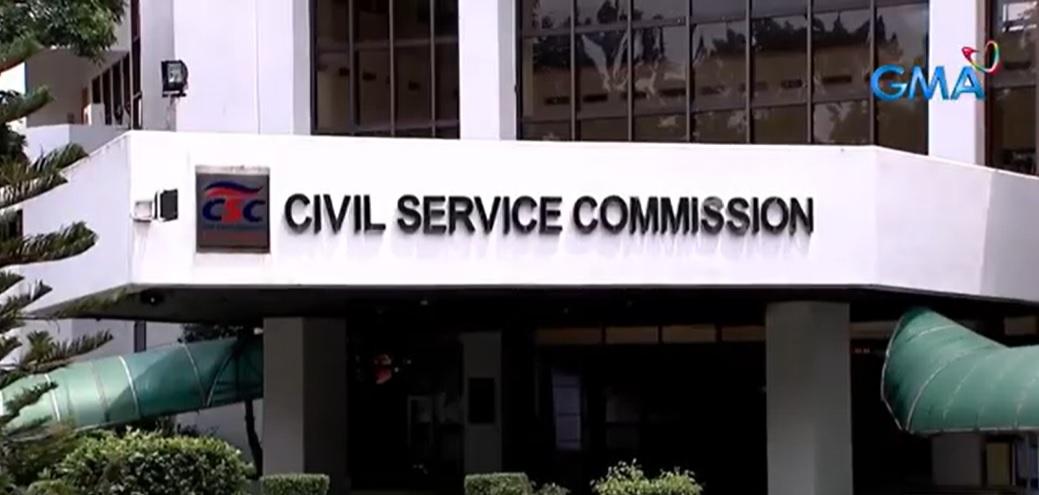CSC urged to recall memo on social media use of gov't personnel

House leaders and former lawmakers urged Thursday the Civil Service Commission (CSC) to recall its memorandum on social media use of government personnel during the campaign period, saying this is a violation of freedom of expression.
"This CSC memorandum is a clear violation of government employees' constitutional rights to free expression and political participation. By prohibiting even the most basic social media interactions like 'liking' or 'sharing,' the CSC is effectively silencing nearly two million government workers and stripping them of their fundamental right to engage in democratic discourse,” House Deputy Minority Leader and ACT Teachers party-list Rep. France Castro said.
"We urge the CSC to reconsider this ill-conceived directive and engage in proper consultation with stakeholders, particularly government employee unions and civil liberties advocates,” Castro added.
In a statement, the CSC reiterated that government employees may like, share, comment on, or repost election-related content on social media for as long as these actions do not solicit support for or against any candidate or party during the campaign period.
"The CSC emphasized the need for prudence in using social media to avoid engaging in partisan political activities. This is as per CSC Memorandum Circular No. 3, s. 2025, which reminds officials and employees to maintain political neutrality in line with the 1987 Constitution," it said.
Castro said the memo, which is dated March 31, 2025, is contrary to a 2015 Joint Circular No. 1 between the CSC and the Commission on Elections (Comelec) which explicitly excluded liking, sharing, and commenting from a list of prohibited partisan political activities.
“Bakit biglang nagbago ang kanilang posisyon [kumpara noong 2015]? Kung hindi ito babawiin ng CSC, hinihikayat namin ang mga apektadong government employees na kumilos at maghain ng legal challenge sa korte. Hindi dapat payagan ang ganitong lantarang pag-atake sa ating demokratikong karapatan," Castro said.
(Why the sudden change of position compared with 2015? If the CSC won’t take this back, we call on government employees to take action and challenge the legality of this before a court. We cannot allow this brazen attack on our democratic rights to go on.)
"Hindi puwedeng basta-basta lang babaguhin ng CSC ang interpretasyon nito sa batas, lalo na't sumasalungat ito sa naunang joint circular na inisyu nila kasama ang Comelec,” Castro added.
(CSC cannot change policies on a whim, especially that this runs counter to a 2015 joint circular with Comelec.)
Castro also said that the penalties are too harsh.
“This will instill fear among government workers and prevent them from engaging in legitimate political discourse, even in their personal capacity," Castro said.
House Assistant Majority Leader and Lanao del Sur Rep. Zia Adiong agreed.
“The simple liking of a post on Facebook or any other social media accounts [to be deemed partisan], that to me is overreaching. It is too punitive. I hope that the Civil Service Commission will reconsider their policy on this,” Adiong said in a press conference.
“It (liking a post) is not tantamount to engaging in partisan politics. I hope that we can still maintain that our civil servants remain non-partisan in politics but [sanctioning them for] a simple liking for a very simple reason that they like the messaging, not necessarily endorsing or campaigning a candidate, is too restrictive and too punitive,” Adiong added.
(Liking or sharing a post is not electioneering or partisan poltical campaign. This is an expression of an opinion, a right guaranteed by the Constitution.)
Former Bayan Muna party-list representative Ferdinand Gaite, on the other hand, said the CSC memo “tramples upon the very rights that civil servants are supposed to uphold and defend.”
Gaite said that while Section 29 of Civil Service Act of 1959 states that “officers and employees in the civil service, whether in the competitive or classified, non-competitive or unclassified service, shall not engage directly or indirectly in partisan political activities or take part in any election except to vote”, the same law provides that “Nothing herein provided shall be understood to prevent any officer or employee from expressing his views on current political problems or issues, or from mentioning the names of candidates for public office whom he supports.”
"Preventing government employees from expressing their views on political issues in social media, especially on policies and politicians affecting their rights and welfare as government workers, is curtailing their rights to freedom of expression as workers and as citizens. We will demand that this Memorandum be rescinded by the CSC and take other measures to protect government worker's rights," Gaite added.
Former ACT Teachers party-list representative Antonio Tinio, for his part, said the CSC memo improperly expands the scope of prohibited partisan activities beyond what is defined in existing laws.
"The CSC has overstepped its authority by unilaterally expanding the definition of prohibited partisan political activities through a mere memorandum circular. This contradicts the Supreme Court's reasoning in Disini vs. Secretary of Justice, where the Court recognized that liking, sharing, or commenting on social media are essentially 'knee-jerk reactions' and do not constitute authorship of the original content,” Tinio said.
"Hindi dapat ituring na electioneering o partisan political campaign ang simpleng pag-click ng 'like' button o pag-share ng post. Ito ay malayang pagpapahayag ng opinyon na garantisado ng ating Konstitusyon," Tinio added. —AOL, GMA Integrated News
For more Eleksyon 2025 related content and updates, visit GMA News Online's Eleksyon 2025 microsite.

Need a wellness break? Sign up for The Boost!
Stay up-to-date with the latest health and wellness reads.
Please enter a valid email address
Your email is safe with us






